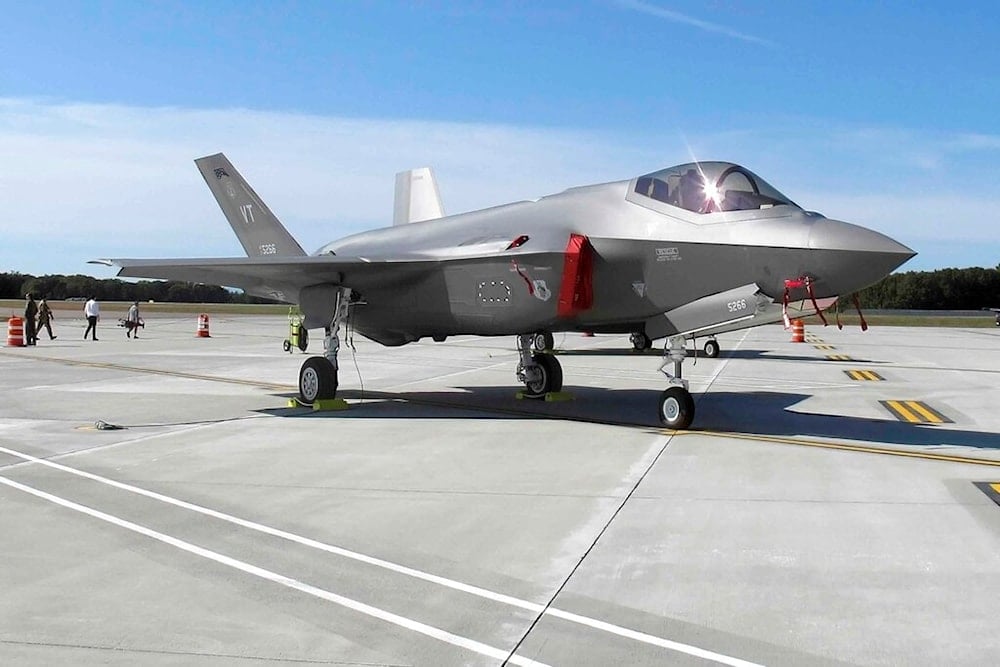Dutch Supreme Court to decide on F-35 parts exports ban to 'Israel'
Human rights groups have maintained that continuing these exports would make the Netherlands complicit in violations of international law.
 An F-35 fighter jet arrives at the Vermont Air National Guard base in South Burlington, Vt., Sept. 19, 2019. (AP)
An F-35 fighter jet arrives at the Vermont Air National Guard base in South Burlington, Vt., Sept. 19, 2019. (AP)
The Dutch Supreme Court is set to decide whether the Netherlands must permanently halt the export of F-35 fighter jet components to "Israel", following an appeal by the Dutch government. The case, brought forward by human rights organizations, argues that these parts contribute to violations of international humanitarian law in Gaza.
In a landmark development, Supreme Court Advocate-General Paul Vlas has advised the court to uphold an earlier appeals court ruling that ordered the Netherlands to cease supplying these parts.
"The Hague Appeals Court ruling that the Dutch State must put an end to the export of F-35 parts to Israel can remain in place," Vlas advised the Supreme Court's judges.
According to Vlas, international regulations binding the Netherlands prohibit the export of military goods when there is a "clear risk" of their misuse in breaches of international law.
Export controversy
The case traces back to a December ruling by the District Court in The Hague, which determined that decisions on arms exports are primarily political and beyond the judiciary's purview. However, this verdict was overturned by the Hague Appeals Court in February, citing significant risks that the F-35 jets could be involved in unlawful military actions.
Advocate-General Vlas' opinion, while non-binding, is a significant development, as his recommendations are typically taken seriously by the court. His assessment underscores the Netherlands' obligations under international treaties, reinforcing the appeals court's decision that halting exports is a legal necessity given the risks involved.
The Dutch state via its own lawyers appealed to the Supreme Court, arguing that the suspension of exports would interfere with political decisions and bilateral agreements. However, human rights groups have maintained that continuing these exports would make the Netherlands complicit in violations of international law.
The Supreme Court’s final ruling, expected soon, could set a significant precedent for arms exports and international accountability. If the court sides with the Advocate-General’s advice, it will affirm that legal and humanitarian considerations can override political discretion in the export of military goods.
Read more: Pro-Palestine NGOs sue Dutch gov't over 'Israel' support

 3 Min Read
3 Min Read








